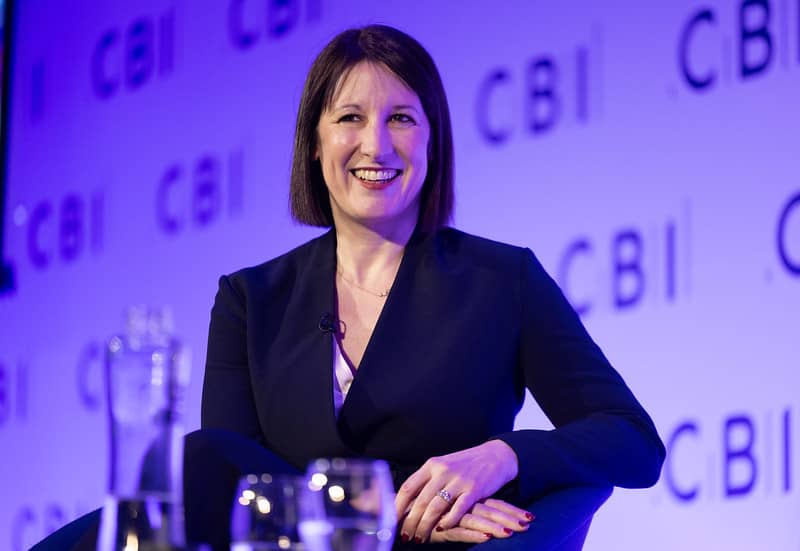Reeves Might Have to Raise Taxes Again as Early as the Spring
- Written by: Gary Howes

Above: Chancellor of the Exchequer Rachel Reeves speaks at the CBI Conference at the QEII Conference Centre. Picture by Simon Dawson / No 10 Downing Street.
Chancellor Rachel Reeves says she won't raise taxes again in this parliament, but economists say she might have to.
Reeves this week told a conference held by the Confederation of British Industry (CBI) that she would not raise taxes again.
"Public services now need to live within their means because I'm really clear, I'm not coming back with more borrowing or more taxes," she said.
However, economists think the poor state of the UK's public finances means Reeves will have to hike taxes, with more tax rises coming as soon as April.
"The UK's debt dynamics are among the worst of the advanced economies, and higher market interest rates have already eaten some of the headroom against the fiscal rules. The Chancellor will come under pressure to implement further tax hikes," says Andrew Goodwin, Chief UK Economist at Oxford Economics.
Goodwin says day-to-day spending pressures will intensify next year, particularly if an unforeseen economic shock occurs. The Chancellor already has very limited fiscal headroom to meet her fiscal rules.
Growth is looking weak, and the Office for Budget Responsibility may have overestimated growth in 2025, which could mean tax collection disappoints.
Next Spring's spending review could be when the next bout of pain lands.
On taking power, the Chancellor launched a multi-year Spending Review, which is to conclude in Spring 2025 and set spending plans for a minimum of three years of the five-year forecast period.
"To avoid worsening this situation, the Chancellor may need to raise taxes again in 2025, perhaps as soon as next spring's fiscal event if movements in market pricing further erode the Chancellor's headroom," says Goodwin.
November's economic surveys reveal business confidence, hiring and investment intentions took a hit after Reeves announced in the October budget she would tap British companies for billions in taxes.
"The first survey on the health of the economy after the Budget makes for gloomy reading. Businesses have reported falling output for the first time in just over a year while employment has now been cut for two consecutive months," says Chris Williamson, Chief Business Economist at S&P Global Market Intelligence.
Today it is revealed retailers are bracing for challenging times ahead, with sentiment among businesses falling at the fastest pace in two years, according to the Confederation of British Industry’s (CBI) latest quarterly Distributive Trades Survey.
Disillusioned businesses confronted Reeves at the CBI conference. Salman Amin, the head of Pladis, a major investor in the UK, said, "it's becoming harder to understand what the case for investment is."
More than 80 chief executives wrote to Reeves last week warning that they faced £7BN in increased costs, making job losses and price rises inevitable, while the chief executive of John Lewis has accused the Chancellor of launching a "two-handed" tax grab on retailers.



